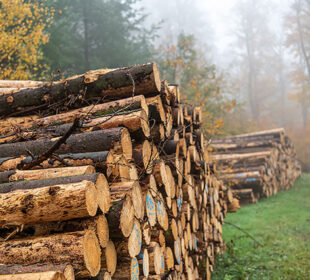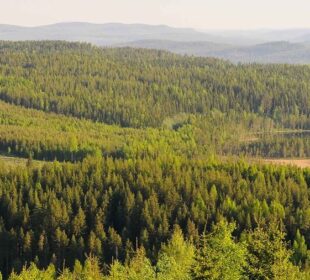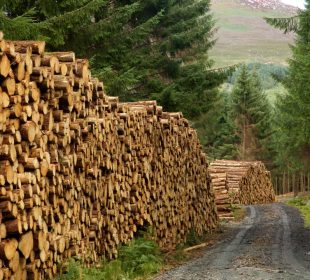A comprehensive "pact for the forest" is needed to get the damage caused by drought and bark beetles under control, the German Forestry Council (DFWR) and the Association of German Forest Owners (AGDW) said in a statement on Wednesday.
"The effects of climate change have led to a crisis in the forests," the two organizations said.
Around 2.3 billion euros (2.55 billion U.S. dollars) were needed as "immediate aid" for the rapid clearance of damaged trees and reforestation, they stated.
"Quick and unbureaucratic help is now needed to cope with the severe damage, reforest the bare areas and make the forests climate fit," said the statement.
Climate change had "contributed significantly to this drama," said AGDW President Hans-Georg von der Marwitz.
"The forests are climate protectors, oxygen producers, recreation areas and habitats for many animal species in equal measure," he said, adding "their rescue is therefore a task for society as a whole."
DFWR President Georg Schirmbeck said all tree species had been affected by the damage.
The drought had dried up around 110,000 hectares of German forests, while around 70 million cubic meters of wood were damaged in 2018 and 2019, Schirmbeck noted.
Germany would require a "huge quantity of trees" to replace the damaged ones but these also had to be grown first, he said.
On Tuesday morning, the German Armed Forces began final preparations for their deployment in Saxony to fight bark beetles in the state's forests, the German press agency (dpa) reported.
Around 50 soldiers would be helping the foresters over the next few weeks, according to the state commandos of Saxony.
"In Saxony's forests, a catastrophe is taking place," said the state's Minister for the Environment, Thomas Schmidt.
Schmidt has recently asked German Defense Minister Annegret Kramp-Karrenbauer for support in processing and removing wood damaged by bark beetles in Saxony's forests.
"The damaged wood must be transported out of the forest as quickly as possible in order to contain the further spread of bark beetles," Schmidt noted.
Since October 2017, Saxony has recorded 5.2 million cubic meters of damaged wood in its forests due to storms, snow breakage and insects, he noted.
Germany's forests are "a decisive CO2 sink, our most important allies in climate protection," said German Minister for Agriculture Julia Kloeckner.
On Thursday, Kloeckner is scheduled to meet with German forestry associations to discuss crisis management and further steps to prepare the forests for climate change.
The meeting would also be part of the preparation for a national forest summit on Sept. 25 that she initiated.
















